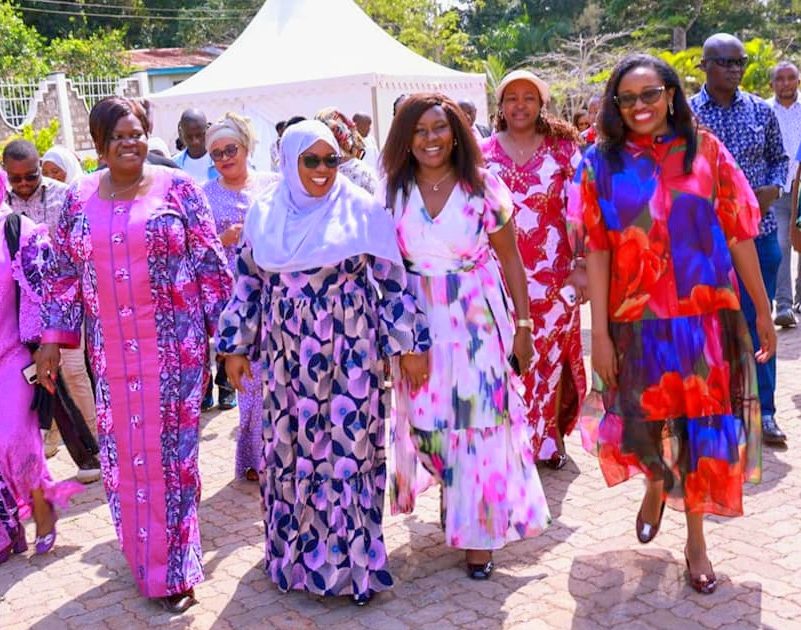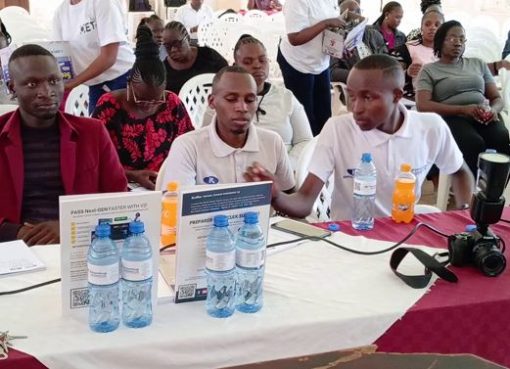Female governors coalescing around G7, an acronym for the seven women governors in the country, have called on womenfolk to make their voices heard in politics.
The G7 says women should take an active interest in politics to let their voices become a powerful catalyst for political and economic transformation of the country.
The female governors’ forum says women should use their numerical strength to get elected into political positions, observing that they will also support their own seeking elective positions.
G7 comprises Fatuma Achani of Kwale, Gladys Wanga from Homa Bay, Susan Kihika of Nakuru, Wavinya Ndeti, Governor, Machakos, Cecily Mbarire, the county boss in Embu, Anne Waiguru of Kirinyaga, and Kawira Mwangaza of Meru.
They say they want to pave the way for more women to seek elective positions and increase their number from seven to 24 in the 2027 General Election.
The female governors, who were in the company of Health Cabinet Secretary Debora Barasa, Devolution Principal Secretary Teresiah Mbaika, and CEO of Council of Governors Mary Mwiti, made the call while on a tour of development projects in Kwale County.
They also heaped praise on President William Ruto and former Prime Minister Raila Odinga for supporting women in political leadership.
They said the two national leaders have allowed Gladys Wanga and Cecily Mbarire to lead ODM and UDA parties, respectively, as chairpersons.
Governor Anne Waiguru of Kirinyaga, who is also the immediate former chairperson of the Council of Governors, says in the 2013 General Election not a single female governor was elected but three got elected into office in 2017 and seven in 2022.
“So we expect more female governors will be elected in 2027 because the Kenyan voter is now wiser and has seen the work done by the pioneer female governors to transform their regions,” Waiguru said.
She says those women who were elected to various political positions have gallantly fought and defied unfavourable traditions in the fight for leadership in a patriarchal society.
Waiguru says the G7 is scaling up efforts to promote women’s participation in political leadership and address the challenges facing women in leadership.
“I want to thank our President and our former Prime Minister for allowing their parties, UDA and ODM, to be led by female politicians because we know such a gesture will go a long way in addressing the endemic problem of low participation of women in political leadership,” said Waiguru.
Governor Gladys Wanga of Homa Bay stated that the G7 is strategising to mobilise women to participate in future elections and address their low participation in politics and leadership.
“We want women to be visible in all political spaces, such as MCAs, MPs, Governors, Senators, and even Deputy President and President, in a bid to bring diverse perspectives into our politics,” Wanga said.
Wanga says the G7 will take head on some traditional and cultural practices that make it difficult for women to seek leadership and decision-making positions.
She says patriarchal norms and practices play a big role in perpetuating gender disparities and limit women’s participation in leadership.
Cecily Mbarire of Embu says the ruling UDA party and the current Kenya Kwanza administration under the leadership of President Ruto will be supporting women’s political activities in the run-up to the 2027 polls.
She says the G7 will ensure women are in the vanguard of political activities and ensure that they are elected to positions of authority.
“The fact that my colleague Gladys Wanga and I are leading two major political parties speaks volumes and is remarkable progress for our country,” she said.
Kwale Governor Fatuma Achani, who played host to members of the G7, says the female governors have shown that they have the capacity to deliver for their people and add value to good governance in the country.
Governor Achani called on leading political parties to support women to run for political positions and end gender disparities in governance.
By Hussein Abdullahi and Nicolies Gogo





